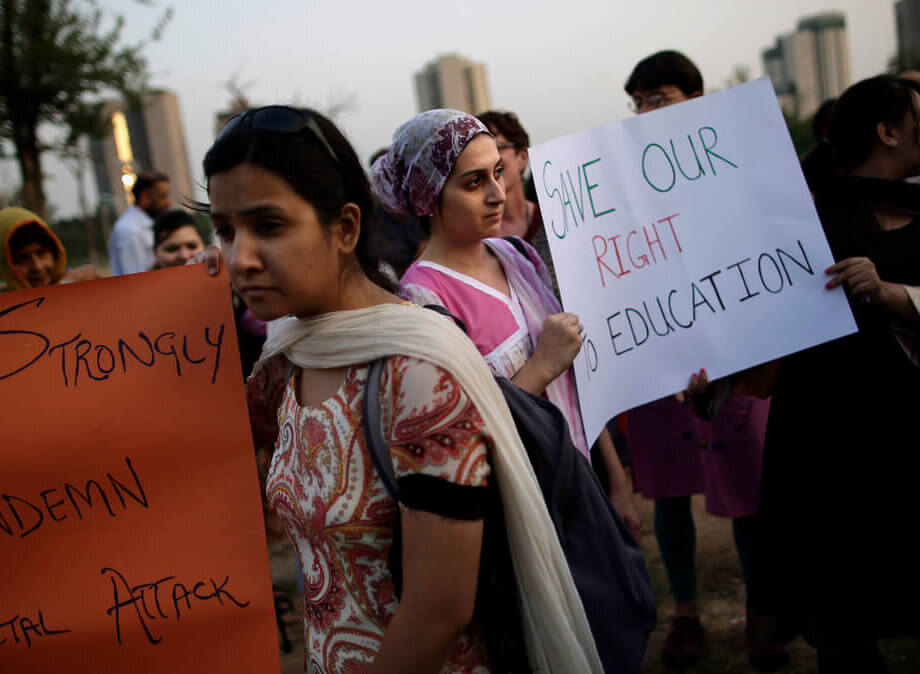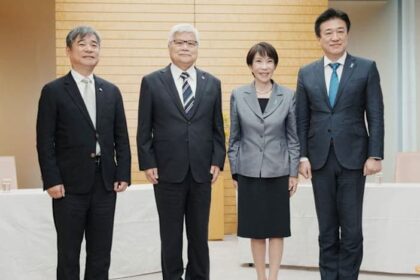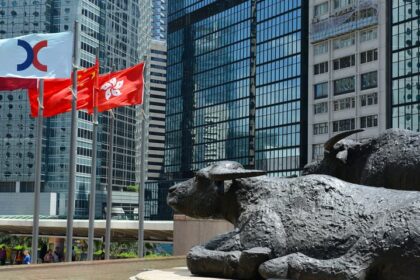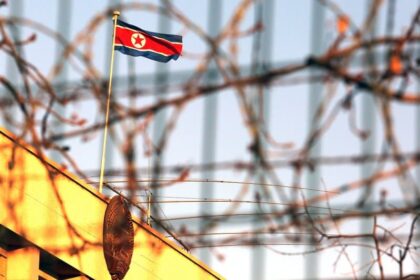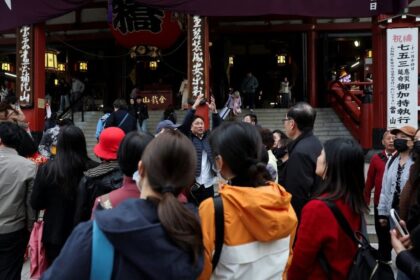The Tragic Murder of Sana Yousaf: What Happened?
The murder of Sana Yousaf, a 17-year-old social media influencer, has sent shockwaves across Pakistan and beyond. On the eve of her 17th birthday, Sana was shot dead at her home in Islamabad’s Sector G-13, in the presence of her mother and aunt. The alleged perpetrator, Omar Hayat, reportedly killed Sana after she repeatedly rejected his advances. Police arrested Hayat within 20 hours of the incident, and he is currently in judicial remand as investigations continue.
- The Tragic Murder of Sana Yousaf: What Happened?
- First Lady Aseefa Bhutto-Zardari’s Response: Condemnation and a Call to Action
- Understanding the Broader Context: Gender-Based Violence in Pakistan
- Victim-Blaming and the Dangers of Online Abuse
- The Role of Law Enforcement and the Justice System
- Benazir Bhutto’s Legacy and the Fight for Women’s Rights
- Social Media: A Double-Edged Sword for Pakistani Women
- Public Reaction and the Path Forward
- In Summary
Sana Yousaf was not just a teenager; she was a rising star on social media, with nearly 800,000 followers on TikTok and almost 500,000 on Instagram. Her content ranged from lip-sync videos to beauty tips and brand promotions, making her a familiar face to many young Pakistanis. Her murder has reignited urgent conversations about gender-based violence, the dangers women face for asserting their autonomy, and the toxic culture of victim-blaming that often follows such tragedies.
First Lady Aseefa Bhutto-Zardari’s Response: Condemnation and a Call to Action
First Lady and Member of the National Assembly (MNA) Aseefa Bhutto-Zardari has emerged as a leading voice condemning the murder. In a series of statements, she expressed deep condolences to Sana’s family, the Chitral community, and all those mourning this senseless loss. Aseefa’s words have resonated widely, not only for their empathy but also for their unflinching critique of the societal attitudes that enable such violence.
Addressing the nation, Aseefa Bhutto-Zardari stated:
“Sana was just a girl—with ambition, with dreams, with a life ahead of her. She had every right to live freely and safely. What happened to her wasn’t just an act of violence—it was a punishment for saying no. And that should horrify every one of us.”
She emphasized that violence stemming from male entitlement is neither new nor rare in Pakistan, and must no longer be tolerated under the guise of culture or tradition. Drawing on her family’s legacy, she invoked her late mother, Shaheed Benazir Bhutto, as a trailblazer who broke barriers for women and opened doors for millions to follow.
Aseefa’s condemnation extended beyond the act itself to the disturbing wave of online abuse and victim-blaming that followed Sana’s death. She categorically rejected the notion that a woman’s social media presence or self-expression could ever justify violence:
“There is nothing—no app, no photo, no video—that excuses murder. It’s disturbing to see people using Sana’s TikTok presence to explain away her death. If that’s the logic, are we saying millions of girls across Pakistan are also at risk? This kind of thinking is not just dangerous—it’s inhumane.”
Her message to young women was one of solidarity and defiance:
“To every girl watching this unfold—don’t let them silence you. You have the right to dream, to speak, to exist without fear. Don’t back down. If you do, they win. But if we keep pushing forward—together—we’ll shape a country where girls aren’t blamed for their own deaths, but celebrated for their lives.”
Understanding the Broader Context: Gender-Based Violence in Pakistan
Sana Yousaf’s murder is not an isolated incident. Pakistan has long grappled with high rates of gender-based violence, including honor killings, domestic abuse, acid attacks, and harassment. According to the Human Rights Commission of Pakistan, thousands of women face violence each year, often with little recourse to justice. The roots of this violence are complex, involving patriarchal norms, social stigma, and a legal system that has historically failed to protect women’s rights.
Experts point out that the notion of male entitlement—where a man’s advances are seen as a right and a woman’s rejection as an insult—remains deeply embedded in many segments of society. This mindset is often reinforced by cultural narratives, media portrayals, and even some legal practices. When women assert their autonomy, whether by refusing a proposal, pursuing a career, or expressing themselves online, they can become targets of violence.
The rise of social media has brought new opportunities for women to express themselves and build careers, but it has also exposed them to new forms of harassment and abuse. Influencers like Sana Yousaf often face online trolling, threats, and character assassination, which can escalate into real-world violence. The backlash against Sana after her death—where some blamed her for her own murder because of her online presence—highlights the urgent need to challenge these toxic attitudes.
Victim-Blaming and the Dangers of Online Abuse
One of the most disturbing aspects of Sana Yousaf’s case has been the wave of online abuse directed at her after her death. Social media platforms were flooded with comments blaming Sana for her own murder, suggesting that her TikTok videos or Instagram posts somehow provoked the violence. This pattern of victim-blaming is not unique to Pakistan, but it is particularly acute in societies where women’s autonomy is often viewed with suspicion.
Victim-blaming not only adds to the trauma of the victim’s family but also discourages other women from speaking out or seeking help. It shifts the focus from the perpetrator’s actions to the victim’s behavior, effectively excusing violence and perpetuating a culture of silence. As Aseefa Bhutto-Zardari pointed out, this kind of thinking is not just dangerous—it is inhumane and puts millions of girls at risk.
Experts in gender studies and human rights have long argued that changing this mindset requires a multi-pronged approach: legal reform, public education, and strong leadership from political and cultural figures. The condemnation from high-profile leaders like Aseefa Bhutto-Zardari is a crucial step in challenging these narratives and supporting survivors.
The Role of Law Enforcement and the Justice System
In Sana Yousaf’s case, police acted swiftly, arresting the suspect within 20 hours of the murder. The suspect, Omar Hayat, is currently in judicial remand as authorities conduct an identification parade and further investigations. While the prompt response has been welcomed, many activists caution that justice must not end with an arrest. Pakistan’s legal system has often been criticized for delays, lack of sensitivity to victims, and low conviction rates in cases of violence against women.
Ensuring justice for Sana Yousaf will require a transparent investigation, a fair trial, and accountability for all those involved. It will also require broader reforms to make the justice system more accessible and responsive to women. This includes training police officers to handle gender-based violence cases sensitively, providing legal aid to victims, and strengthening laws against harassment and abuse.
There is also a need for better protection mechanisms for women who face threats, whether online or offline. This could include safe houses, helplines, and support services for survivors of violence. The government and civil society organizations must work together to create an environment where women feel safe to report abuse and seek help without fear of reprisal or stigma.
Benazir Bhutto’s Legacy and the Fight for Women’s Rights
Aseefa Bhutto-Zardari’s response to Sana Yousaf’s murder is deeply rooted in her family’s legacy of championing women’s rights. Her mother, Shaheed Benazir Bhutto, was the first woman to lead a Muslim-majority country and a symbol of women’s empowerment in Pakistan. Benazir Bhutto’s leadership broke many barriers, inspiring generations of women to pursue education, careers, and public life.
However, the struggle for gender equality in Pakistan remains ongoing. Despite progress in some areas, women continue to face significant challenges, from legal discrimination to social stigma and violence. The murder of Sana Yousaf is a stark reminder that the fight for women’s rights is far from over. As Aseefa Bhutto-Zardari noted, it is the responsibility of all Pakistanis to keep the doors open for young women and to honor the legacy of those who have paved the way.
Women’s rights activists argue that real change will require not just legal reforms but also a transformation of social attitudes. This means challenging patriarchal norms, promoting gender equality in education and the workplace, and celebrating women’s achievements rather than policing their choices.
Social Media: A Double-Edged Sword for Pakistani Women
Sana Yousaf’s prominence as a social media influencer highlights the opportunities and risks that digital platforms present for women in Pakistan. On one hand, platforms like TikTok and Instagram have allowed women to build audiences, share their stories, and earn livelihoods. On the other hand, they have also exposed women to unprecedented levels of scrutiny, harassment, and even physical danger.
For many young women, social media is a space for self-expression and community-building. However, the backlash against Sana Yousaf demonstrates how quickly this space can become hostile. Online abuse, doxxing, and threats are common experiences for female influencers, and the lack of effective moderation or legal recourse often leaves them vulnerable.
Experts recommend that social media companies take stronger action against harassment and abuse, including better reporting mechanisms and stricter enforcement of community guidelines. At the same time, there is a need for digital literacy programs to educate users about online safety and respectful behavior. Ultimately, the goal should be to create a digital environment where women can participate freely and safely.
Public Reaction and the Path Forward
The murder of Sana Yousaf has sparked widespread outrage and calls for justice across Pakistan. Civil society organizations, women’s rights groups, and ordinary citizens have demanded accountability and systemic change. Many have echoed Aseefa Bhutto-Zardari’s call to reject victim-blaming and to support women’s right to autonomy and safety.
There is a growing recognition that addressing gender-based violence requires collective action. This includes not only holding perpetrators accountable but also challenging the cultural norms that enable such violence. Public awareness campaigns, school curricula on gender equality, and community dialogues can all play a role in shifting attitudes.
Political leaders, religious figures, and media personalities have a responsibility to use their platforms to promote respect for women’s rights and to condemn violence in all its forms. As the conversation continues, it is crucial to center the voices of survivors and to ensure that their experiences inform policy and practice.
In Summary
- Sana Yousaf, a 17-year-old social media influencer, was murdered in Islamabad after rejecting repeated advances from the alleged perpetrator.
- First Lady Aseefa Bhutto-Zardari strongly condemned the murder, calling it a punishment for saying no and a stark reminder of the violence women face in Pakistan.
- Aseefa’s statements rejected victim-blaming and called for solidarity, urging young women not to be silenced by fear or abuse.
- The case has highlighted broader issues of gender-based violence, male entitlement, and the dangers of online abuse in Pakistan.
- Swift police action led to the arrest of the suspect, but activists stress the need for systemic reforms to ensure justice and protect women’s rights.
- The legacy of Benazir Bhutto and the ongoing struggle for gender equality remain central to the fight against violence and discrimination.
- Social media offers both opportunities and risks for women, underscoring the need for safer digital spaces and stronger protections.
- Public outrage over Sana’s murder has sparked renewed calls for accountability, legal reform, and cultural change to end violence against women in Pakistan.


